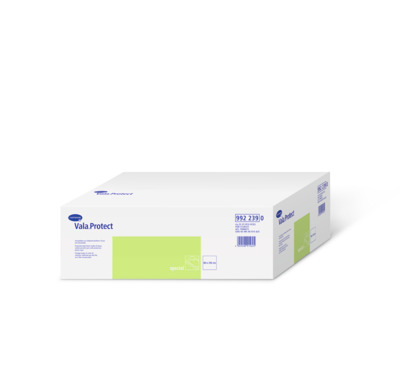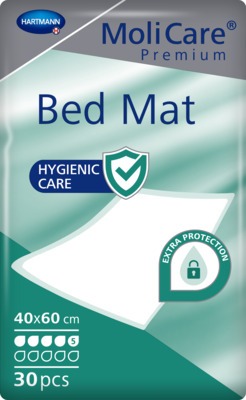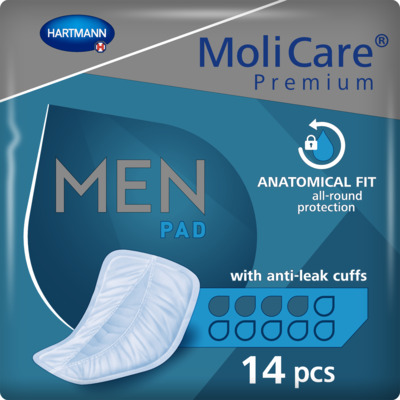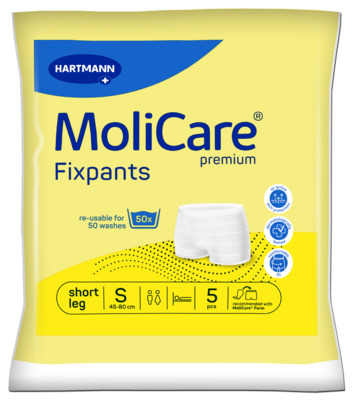Incontinence Advice
How to Manage Incontinence in the Elderly: Advice for Carers
Incontinence among older adults and elderly people often remains a hidden struggle and is frequently shrouded in silence. With our advice for carers, you can confidently support people struggling with incontinence and support them to live a more comfortable lifestyle.
Many individuals facing incontinence keep it concealed, even avoiding discussions with healthcare providers. As carers, understanding how to support people with incontinence compassionately and effectively is crucial. On reading this article, you will develop an understanding of the challenges of living with incontinence, empower yourself with knowledge about some of the treatments available, and find out about strategies for managing incontinence in the elderly.

Continence Assessment
Understanding the cause of the incontinence is key to managing it effectively. A thorough continence assessment by a healthcare professional is important to determine which treatments or aids will be most effective.
During the assessment, information will be collected, such as medical history, frequency and volume of urine or faeces and strength of the pelvic floor. Diagnostic tests, such as urine analysis and a bladder ultrasound, might be conducted to find out the cause of the incontinence.
Other aspects that will be taken into consideration are diet, fluid intake (especially caffeine), medication, mobility and self-care capabilities such as preparing food, dressing and bathing. Memory and self-awareness are also critical factors, as the ability to recognise the need to go to the toilet and to remember where the toilet is determines the level of support needed.
How to Manage Incontinence in the Elderly Advice for Carers
Managing Incontinence
Addressing how to manage incontinence in the elderly requires multiple, professional approaches. Treatment options vary based on the incontinence type and underlying causes. Strategies may include increasing daily fluid intake, adopting a high-fibre diet, engaging in pelvic floor exercises, and bladder retraining. Educating on toilet habits, utilising medication for symptom relief, and using aids like molicare slips can also be integral to managing the condition effectively.
Effectively caring for someone with incontinence requires patience and understanding. It is important to consider the emotional distress and embarrassment the individual may be feeling as this is often associated with the condition. Open communication and maintaining a sense of humour can alleviate some tensions. While treatments can manage symptoms, a return to full continence may not always be possible, and occasional accidents are to be expected. Carers must also prioritise their own well-being, ensuring regular breaks to sustain their capacity to provide compassionate and effective care.
Toileting Suggestions For Caregivers
Having supplies within easy reach, such as pads, gloves and barrier cream, can ensure a smoother toileting experience. Installing aids such as raised toilet seats and grab rails can provide stability and confidence. Background music can be used to aid relaxation. Monitoring and responding to the individual's toileting habits can help with timely bathroom assistance, and for those with mobility issues, a bedside commode may be preferable.
Further information is also available in regards to elderly patients with dementia and incontinence.

Hygiene Management In Elderly Incontinence
Hygiene is very important when caring for someone with incontinence. Carers should use disposable gloves when assisting with toileting and pad changes, and follow with gentle skin cleansing using warm water. Applying a barrier cream after drying the area is an essential part of a good skincare routine, as this can help to keep the skin in good condition and prevent irritation. The proper disposal of incontinence products and gloves is essential to maintain sanitation and avoid plumbing issues. Then, of course, thorough hand washing when finished.
Utilising Pads
A wide range of products are available to aid in managing incontinence, offering solutions for various needs and levels of severity. From absorbent continence pads to incontinence pants and adult nappies, these products are designed to manage incontinence while preserving dignity and independence. Consulting with healthcare professionals can help determine the most suitable products, ensuring effective management of the condition.
Recognising When to Seek Medical Advice
Supporting an elderly person with incontinence includes knowing when to seek medical help. Immediate professional consultation is recommended for symptoms like an inability to urinate, sudden changes in urinary habits, pain when urinating, cloudy and offensive-smelling urine, ongoing constipation, or prolonged diarrhoea. Professional advice should also be sought for persistent skin irritation, as this could indicate that a change in pads/barrier cream or hygiene routine is required or that the skin has become infected.
Emotional distress in a person with incontinence is also a sign that extra support or professional intervention is needed. This proactive approach can prevent complications and improve the overall management of incontinence in the elderly.

Navigating Embarrassment And Emotional Challenges
Dealing with incontinence can bring about feelings of embarrassment and emotional turmoil. From an early age, many will be taught about the importance of toilet training, making adult incontinence a challenging experience that often carries a social stigma. Addressing how to deal with elderly incontinence involves acknowledging these feelings and understanding they are common. Openly discussing the situation and sometimes using a small amount of humour can alleviate the discomfort associated with incontinence living.
The Emotional Spectrum Of Incontinence
As well as embarrassment, individuals with incontinence may experience impatience, frustration, anger, fear, and even disgust. These emotions can deeply affect their sense of dignity and independence, leading to a perceived loss of quality of life. Finding a supportive person to talk to, such as a healthcare provider, counsellor, or member of an incontinence support group, is crucial to managing these feelings. After sharing their experiences with others, they may realise they are not alone, and this can help reduce the psychological burden.
You can also contact us for further information about the right incontinence products to use for the individual. Sharing one’s experiences helps to normalise the situation and reduce the psychological burden.
Privacy And Independence
The privacy of the bathroom is a sanctuary for many, and requiring support with incontinence challenges this private space. Balancing the need for assistance with the desire for independence can be difficult. Creating a comfortable environment is key. Practical adjustments, like discreet storage of incontinence products and maintaining cleanliness, can help maintain dignity and ease the emotional impact. Discussing these needs and finding solutions together with carers or family members can make the experience more manageable and less intrusive.
Addressing Anxiety And Isolation In Incontinence
Anxiety frequently accompanies incontinence, especially when venturing outside the home. Concerns about finding toilets and managing incontinence in public can lead to social withdrawal, isolation and emotional distress. Well-planned outings can ensure an accident-free and more relaxed experience. Outings should include plans for accessible toilet facilities that respect the individual's privacy needs as much as possible. Carrying additional incontinence products allows for more confident and less stressful outings. Transparent communication with friends and family about the need for frequent toilet breaks helps in managing social situations and reduces the anxiety associated with it.
Overcoming Denial In Incontinence Management
Denial can be a significant barrier to effective incontinence management. Accepting the reality of incontinence and actively seeking treatment or management solutions is crucial for improving quality of life. Acknowledging changes in bodily functions and addressing them proactively can enhance the ability to live well with incontinence. Engaging in honest discussions with healthcare professionals about odour management and other concerns can lead to better strategies for dealing with incontinence.

Bowel Incontinence
Aside from urinary incontinence, bowel incontinence introduces unique challenges, emphasising the need for thorough strategies to manage it. Odour control and skin hygiene become paramount, as prolonged contact with stool on the skin can cause redness and even skin breakdown, which can lead to a lot of discomfort and further health issues. Carers should be equipped with the necessary supplies and knowledge to manage these incidents promptly and sensitively. We recommend MoliCare® Premium Form Stool, open discussions about the condition, its impact, and the feelings it generates are crucial in managing both the physical and emotional aspects of bowel incontinence.
Contact us for further information about the right incontinence products.

Coping With The Complexities Of Incontinence
Effective management involves regular consultations with healthcare providers to explore treatment options and preventative measures. Lifestyle adjustments, such as scheduling medication intake, modifying diet, and engaging in specific exercises like Kegel exercises for men and women, can mitigate incontinence symptoms. Recognising and addressing the condition's psychological impact is also essential. The stigma associated with incontinence often leads to delayed medical consultations and a reduced quality of life. Encouraging open communication and seeking professional guidance can help alleviate the mental burden associated with incontinence.
Embracing A Proactive Approach To Incontinence Management In The Elderly
In conclusion, managing incontinence in the elderly requires a compassionate approach that addresses both physical and emotional challenges. By understanding the various aspects of incontinence, from assessment and management to the emotional and financial impacts, caregivers can provide effective support. Open communication, appropriate medical guidance, and community awareness are key to improving the quality of life for those affected. Embracing a proactive stance on incontinence living ensures dignity and comfort for the elderly.
FAQs
How do carers manage incontinence?
Carers manage incontinence by sensitively listening to the wishes of the person with incontinence, allowing them to make decisions about their care, and observing any health changes that may affect their well-being.
Can incontinence in elderly people be treated?
Yes, it can. It depends on the cause of the incontinence, so a thorough assessment to establish the cause of the incontinence is important. Although incontinence is far more common in elderly people, it shouldn’t just be accepted as a fact of life, as treatments are available.
How do you talk to someone about incontinence?
Approach the topic with sensitivity and respect, focus on how it’s a common and manageable issue, and discuss potential solutions and professional help to address their concerns.
Sources
NHS. (2018) Urinary Incontinence: Diagnosis. [online] Available at: https://www.nhs.uk/conditions/urinary-incontinence/diagnosis/ [accessed 05/04/24]

ValaProtect Bed Sheets

MoliCare Premium Bed Mat 5 Drops
<h2>Hygienic care and protection whilst asleep</h2> <p>We are forever looking for new ways to help and improve the lifestyle for people living with accidents in the night no matter what their age. And we know that weeing in your sleep can affect anyone at any age for a variety of reasons, disturbing sleep and causing embarrassment. Add an extra layer of protection with MoliCare® Premium Bed Mat 5 Drops, which is designed to help people managing bladder weakness and incontinence or those caring for children and loved ones. These bed mats offer an extra layer of safeguarding, protecting surfaces from leaks with their waterproof backing and effective liquid absorption provided by the fluff core.</p> <h2>Choose MoliCare®</h2> <p>Key features of using the MoliCare® Premium Bed Mat 5 drops include:</p> <ul> <li>Hygienic, protecting mattresses and added protection for those with bladder weakness and incontinence or caregivers looking after loved ones.</li> <li>Available in various sizes and absorbencies to suit individual needs and preferences.</li> <li>Versatile protection for beds, chairs, furniture, and other surfaces, ensuring cleanliness and peace of mind.</li> <li>Featuring an absorbent core, these disposable bed mats offer an extra layer of security, preventing leaks and spills effectively.</li> <li>Experience discreet comfort with the soft top sheet and cotton-like back sheet, ensuring a pleasant user experience.</li> </ul> <p>MoliCare® Premium Bed Mat 5 Drops is the ultimate reliable and practical solution for bed hygiene and protecting surfaces from any accidents or leaks. Whether for personal use, children or caregiving older adults, these bed mats provide added peace of mind, allowing you or your loved ones to rest comfortably and worry-free. Embrace the convenience and comfort of MoliCare® Premium Bed Mat 5 Drops and ensure a clean and protected environment for all. Order today and receive free standard UK delivery when you spend £50 or more, or opt for next working delivery. Stay safe and secure on the go with HARTMANN Direct and MoliCare®.</p>
MoliCare® Premium Men Pad 4 Drops
<h2>Comfortable and absorbent</h2> <p>Why MoliCare for men? Hers are some of the key features of the MoliCare® Premium Men Pads from Hartmann:</p> <ul> <li>Discreet and comfortable</li> <li>Fits the male physique</li> <li>3-layer absorbent core</li> <li>Fast-absorbing system</li> <li>Anti-leakage cuffs</li> <li>Odour neutralisers</li> <li>Wide adhesive strip</li> <li>Skin-friendly</li> </ul> <p>With an affordable price and great quality guarantee, you cannot regret choosing MoliCare® Premium Men Pad 4 drops, equipped with anti-leak cuffs, and 14 pieces per bag.</p> <h2>Slim and discreet under clothing</h2> <p>MoliCare® Premium MEN Pads offer reliable support for men dealing with bladder weakness. Whether it's stress incontinence or urge incontinence, these pads for men are designed to provide a discreet and quick solution on the go. Simply place the pad before applying your underwear and secure it with the adhesive strip for worry-free protection. MoliCare® Premium MEN Pads offer full coverage for men facing very light to moderate bladder weakness.</p> <h2>Leakage protection for men</h2> <p>MoliCare® understands that each individual's incontinence needs are unique. That's why our incontinence products, including MoliCare® Premium MEN Pads, are available in different absorbency levels. You can find the perfect fit and protection for your specific requirements.</p> <h2>Reliable and soft on the skin</h2> <p>Our body-shaped absorbent pads are designed to deliver dependable and skin-friendly incontinence protection every day. Experience discreet comfort with the soft, cotton-like materials and the added benefit of an odour neutraliser, ensuring you feel fresh and confident throughout the day.</p> <h2>Fast delivery to your home</h2> <p>At HARTMANN Direct, we ensure a fast delivery service for all our products. Enjoy free delivery on orders over £50, making it convenient and hassle-free to receive the incontinence products you need. Our dedicated customer care team is here to discuss your incontinence product needs and answer any questions you may have. Call us today on 0800 028 9470 to experience the comfort and confidence that MoliCare® Premium MEN Pads can provide.</p>
